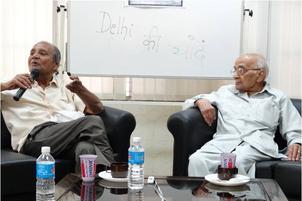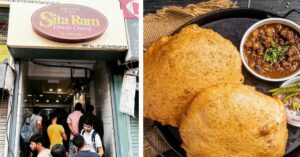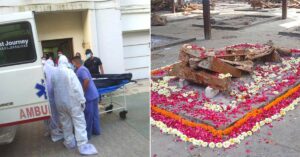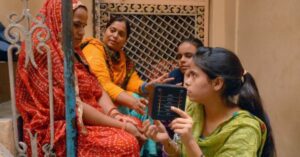Tired of Reading? Now You Can Hear Tales From History Like Never Before!
The Department of Archives and the Centre for Community Knowledge of Ambedkar University in New Delhi will now attempt to fill gaps in history by collecting anecdotes and compiling them in an online archive.

Historical archives tell the many stories of our nation, of the kingdoms that rose and fell, of governance that was lost and conquered and of all the past events which led to India becoming what is today. The documented history speaks about the stories of rulers, their nobles, and their contemporary elites.
However, a vacuum still exists in these thick archives—that of common people sharing their experiences as India changed its nature over time.
The Department of Archives in New Delhi will now attempt to fill this gap by collecting anecdotes from freedom fighters, authors, lawyers, dancers, and artists from Delhi and compiling them in an online archive.

An official of Delhi government who is involved in the project spoke to the Hindustan Times about certain examples of experiences that are likely to be included in the project.
“Delhi has a culture of extravagant weddings since the Mughal Times. The fifth Mughal emperor Shah Jahan is believed to have spent Rs 32 lakh for the wedding of Dara Shikoh, his eldest son, which was solemnised in 1633. Be it a wedding function or other celebrations, mujra dancers were invited to perform. These nuggets from Delhi’s history have almost been forgotten, or are known to a handful of people. Through this ‘oral history’ documentation project, the department will try to uncover more such fascinating trivia about the city’s culture and its history,” he said.
The department plans on recording perceptions of common men and women about historical events like the 1857 uprising, or the India-Pakistan partition experiences.

The Centre for Community Knowledge (CCK) of Ambedkar University, Delhi began conducting interviews for the oral history project in 2013. So far, they have conducted 250 interviews and collected 4500 photographs so far.
Surajit Sarkar, associate professor, and coordinator at CCK told HT, “We have been doing this audio-video documentation of people for five years. By September, our archives will be complete and can be accessed online free of cost. We have spoken with a variety of people from daily wagers to upper-class urban residents.”
The celebration of festivals, recreational activities, ceremonies and other such lifestyle experiences are what the department hopes to shed light on.

For example, did you know that Hindu wedding ceremonies once used to be an intimate celebration, which was organised at home and involved only family and close friends? This is in stark contrast to the lavish events that weddings are today!
In the Mughal Era, both Muslim and Hindu festivals were celebrated at Lal Quila with equal zeal. Mela (fairs) were held on the banks of Yamuna river where dance troupes and mimics performed.
OP Jain is a conservationist who is supporting this collection of stories from common people. “Across the world, cities archive their oral history by involving people. We feel differently about it. We need to understand that intangible heritage is equally important. Several European city museums have dedicated a section for oral history.
Oral documentation by the government may become part of the proposed Delhi’s contemporary museum,” he said.

The oral history project hopes to give voice to stories that are shared only among families, and are restricted to that close circle. It hopes to bring alive these stories that might perish in a few generations.
All the information collected under this project will be accessible to researchers and history enthusiasts who are keen on knowing how life in Delhi was, in a time that we have only read about in books. After the compilation of experiences is completed, the department will organise an exhibition as well.
You may also like: Prem Behari Narain Raizada: The Man Who (literally) Wrote India’s Constitution
Featured image: Left- Provincial Student Federation rally in Delhi (1941). Right- A Picnic in 1939-40: Source.
Like this story? Or have something to share?
Write to us: [email protected]
Connect with us on Facebook and Twitter.
NEW: Click here to get positive news on WhatsApp!
This story made me
- 97
- 121
- 89
- 167
Tell Us More
We bring stories straight from the heart of India, to inspire millions and create a wave of impact. Our positive movement is growing bigger everyday, and we would love for you to join it.
Please contribute whatever you can, every little penny helps our team in bringing you more stories that support dreams and spread hope.



















